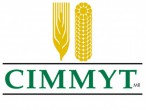
Deputy Director on scientific work of Genetic Resources Institute (GRI) of Azerbaijan National Academy of Sciences (ANAS), head of Department on Biotechnology, PhD in Biology Dr.Mehraj Abbasov has been on a 5 day scientific trip in Mexico.
Along with international organisations like ICARDA, IRRI and ICRISAT, 48 scientists and specialists working with genome and molecular marker technologies from Azerbaijan, USA, UK, China, France, Czech Republic and other countries participated at the workshop titled “Genomics for gene banks” organised by CİMMYT international organisation.
During the event, participants emphasized the importance of researches carried out on the genome level for genebank and selection works, provided insight into new methods, showed results of several researches, and listened to reports about organisms, which genomes have been read.
They highlighted that already all international and developed countries started re-sequencing and de novo sequencing works on plant genetic resources stored in genebanks, and finalised reading genomes of thousands of plants.
They emphasized that sequence-based genotyping and exome sequencing used in genotyping of plant genetic resources are very important in the grouping of genetic resources, mapping phenotypic signs and creating of core collections. Dr.MehrajAbbasov addressed the workshop with report titled “Genotyping genetic resources of Azerbaijani plants”.
He noted that the GRE of ANAS started genotyping of plants with molecular markers starting from 2007 and many international articles were written about relevant results.
To the end of starting researches at the genome level in Azerbaijan and preparing high level personnel within the pilot project of the Science Development Fund under the President of Azerbaijan Republic, Genomics laboratory was set up within Department of Biotechnology of the GRE, and new generation sequencers (NGS) were bought and assembled in 2013.
The GRE started researches with genotyping-based sequencing, amplicon sequencing and SNP genotyping methods starting from 2015. At the same time first results on wheat and barley were obtained.
In addition, researches on reading small genomes by the NGS are also carried out. De novo sequencing reading and transcriptome analysis of pomegranate genome started in 2015 in cooperation with the US and Australian scientists. The laboratory experiences were finalized in this sphere and bioinformation analysis of the obtained genome information is being carried out.
International organisations highly evaluated protection of genetic resources in Azerbaijan, in-situ and ex-situ storage, selection use and study by use of modern technologies.
He also held discussions with representatives of ICARDA and CIMMYT organisations, as well as USA, China, France and Czech Republic to the end of strengthening researches at the genome level in future and covering all plants, mastering new methods and participating in the joint international projects.